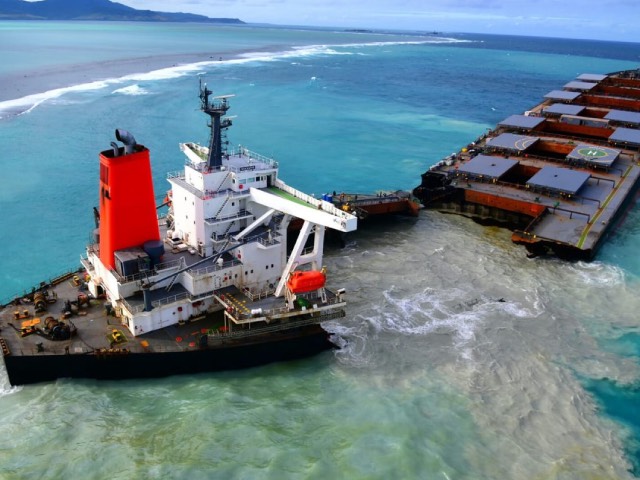Despite decades of policy work, countries party to the Nairobi Convention still have different capabilities in responding to marine pollution incidents, including equipment and personnel. During a recent oil spill preparedness workshop in Zanzibar, these countries asked for annual communication drills and joint multilateral exercises to ensure regional cooperation. To this end, adopting the draft regional contingency plan for the Western Indian Ocean and establishing a regional coordination centre are crucial.
Key findings
- The July 2020 grounding of the MV Wakashio off the coast of Mauritius showed that the activation of a national oil spill contingency plan cannot stop the far-reaching impacts of marine pollution incidents.
- As signatories to international conventions, countries have a legal obligation to organise and prepare their response to major marine pollution incidents and to make efforts at national, subregional and regional levels in this regard.
- Significant policy work has been undertaken in the Western Indian Ocean region to collectively prepare a response to oil spills and other hazardous pollution incidents, but the draft regional contingency plan has not been adopted yet.
- During the most recent regional oil spill preparedness workshop in Tanzania, countries asked that the establishment of a regional centre or mechanism for the implementation of regional coordination be finalised as a matter of urgency.
- Countries also requested annual communication drills and joint multilateral exercises, as well as continuous capacity building. This is crucial to ensure standardised response capabilities.
- The establishment of a regional centre can contribute to a more coordinated and standardised response by way of regional coordinated training exercises on a regular basis.
Recommendations
- As the basis for regional cooperation in major marine pollution emergencies, the draft regional contingency plan (a result of the Agreement on the Regional Contingency Plan for Preparedness for and Response to Major Marine Pollution Incidents in the Western Indian Ocean Region) must be adopted. It has been in draft form for more than a decade.
- Nationally, operational personnel and various parties involved in marine pollution incidents must gain continuous training and experience in handling the relevant equipment and products. Training can take the form of seminars, workshops, tabletop exercises, drills, functional exercises and full-scale exercises.
- Regionally, annual training exercises and joint multilateral exercises must be held, either in the form of regular on-the-ground training or with simulator training.
- Funding sources from both national governments and international mechanisms must be identified and mobilised to support regional training and exercise programmes. When countries lack the necessary funding to participate in SEAIGNEP meetings, online meetings should be organised.
- The establishment of the Regional Coordination Centre must be finalised by the end of 2021 to coordinate regular and standardised training exercises.
- Strong political will is needed on a national level to ensure funding is available for operational personnel to attend the necessary meetings, workshops and training; to adopt the draft regional contingency plan; and to establish the regional coordination centre.
Download the full report here.
Source:ISSAfrica









































